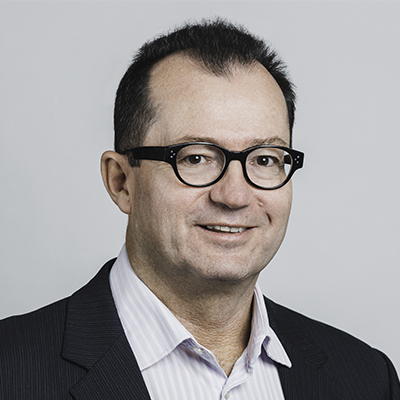Is a Self-Managed Super Fund right for you?
Wondering if self-managed super is for you? FMD Director and Financial Adviser, Mike Reynolds, answers common questions about SMSFs.
Who is the ideal candidate for a Self-Managed Super Fund (SMSF):
I think the only person who needs to set up an SMSF is someone who wants to hold some form of direct property asset, whether a commercial or residential property investment.
The technology available today for running direct shares, listed fixed interest securities, managed funds and multiple term deposits are all available on platforms that are far easier and equally or more cost effective than running an SMSF.
In the past a lot of small business owners who had shares (and were perhaps more engaged than the normal retail investor), wanted a greater level of control and more flexibility, particularly around investment choice. Investment platforms like Asgard, BT, Macquarie or Colonial, all offer this. My view is, if you want to buy an investment property then an SMSF is something you should definitely consider.
What is the best time in life to start an SMSF?
If a lifetime home is already purchased, it’s at this point a person becomes a discretionary investor, and it can be the right time to consider whether or not they are going to buy an investment property.
People should ask themselves whether they should buy the property via their superfund or via their own personal holdings. There are advantages and disadvantages to each option, and it’s best to talk these through with your FMD adviser, who will take into account your personal position.
The media can give SMSFs a fairly bad name. What do you think are the misconceptions surrounding SMSFs?
I think because some accountants and financial advisers view SMSFs differently, comparing them to typical employee superannuation funds. There is nothing wrong in weighing up the pros and cons, but bear in mind the media does beat up on these things. Ultimately, an SMSF is just a vehicle by which you can hold an asset, this can be done inside or outside of super, it’s just a matter of working through the advantages and disadvantages of each strategy, to identify what will work for your personal circumstance.
What are the dangers of a DIY SMSF or some of the cheaper online SMSF providers?
There are a lot of legal rules and requirements surrounding SMSFs, such as what sort of assets you can hold and who you can acquire these assets from. For example, a commercial property is classified as a business real property and you can potentially acquire that from yourself. If you’re a small business owner running your business out of a factory that you own, you may consider having that inside your SMSF, as the business would be paying rent to you as concessional taxed entity. Alternatively, if you’ve had an investment property in a block of flats for 20 years, you can’t buy it from yourself.
An experienced adviser knows there are many other issues, such as liquidity, pension payments (buying a property in an SMSF creates a whole series of problems around minimum pension payments), and an individual needs to ask their adviser: “Does my SMSF generate sufficient cash flow to meet my pension payments?”
Why are FMD the best people to help you establish an SMSF?
FMD has a series of long standing and experienced advisers who manage over 200 SMSFs, and a fair portion of these funds have exposure to property. We are very objective about helping our clients with the requirements surrounding the reporting, assisting and providing of underlying details for the end of year tax returns (an SMSF requires a separate detailed tax return statement).
Our advisers work in conjunction with their clients’ accountants to identify and understand the legislative traps that people can often get themselves into.
Considering an SMSF or have questions about your super or financial future?
Book in for a free financial health check
General advice disclaimer: This article has been prepared by FMD Financial and is intended to be a general overview of the subject matter. The information in this article is not intended to be comprehensive and should not be relied upon as such. In preparing this article we have not taken into account the individual objectives or circumstances of any person. Legal, financial and other professional advice should be sought prior to applying the information contained on this article to particular circumstances. FMD Financial, its officers and employees will not be liable for any loss or damage sustained by any person acting in reliance on the information contained on this article. FMD Group Pty Ltd ABN 99 103 115 591 trading as FMD Financial is a Corporate Authorised Representative of FMD Advisory Services Pty Ltd AFSL 232977. The FMD advisers are Authorised Representatives of FMD Advisory Services Pty Ltd AFSL 232977. Rev Invest Pty Ltd is a Corporate Authorised Representative of FMD Advisory Services Pty Ltd AFSL 232977.



